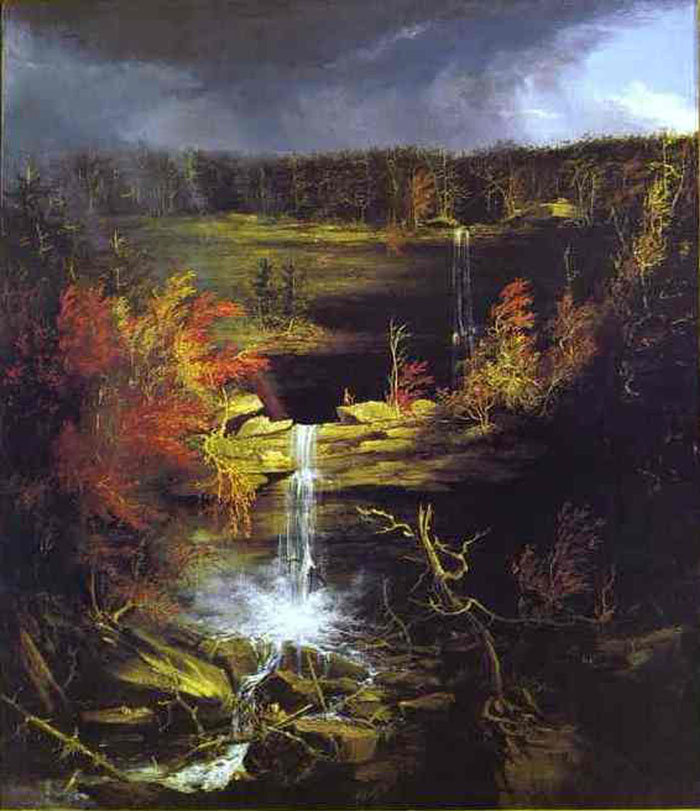
Falls of Kaaterskill (1826)
Thomas Cole
Oil on canvas
The Warner Collection of Gulf Paper Corporation, Tuscaloosa, Alabama
Hudson River School Art Trail
Cole's charcoal sketch at the Detroit Institute of Arts (DIA)
Thomas Cole, "Essay on American Scenery," The American Magazine, n.s. 1 (Jan. 1836): 1-12.
[…]In the Forest scenery of the United States we have that which occupies the greatest space,
and is not the least remarkable; being primitive, it differs widely from the European.
In the American forest we find trees in every state of vegetable life and decay--the slender
sapling rises in the shadow of the lofty tree, and the giant in his prime stands by the hoary
patriarch of the wood--on the ground lie prostrate decaying ranks that once waved their v
erdant heads in the sun and wind. These are circumstances productive of great variety and
picturesqueness--green umbrageous masses--lofty and scathed trunks--contorted branches thrust
athwart the sky--the mouldering dead below, shrouded in moss of every hue and texture, form richer
combinations than can be found in the trimmed and planted grove. […] Trees are like men,
differing widely in character; in sheltered spots, or under the influence of culture,
they show few contrasting points; peculiarities are pruned and trained away, until there
is a general resemblance. But in exposed situations, wild and uncultivated, battling with
the elements and with one another for the possession of a morsel of soil, or a favoring
rock to which they may cling--they exhibit striking peculiarities, and sometimes great originality. [….]
There is one season when the American forest surpasses all the world in gorgeousness--that
is the autumnal; -- then every hill and dale is riant in the luxury of color--every hue is
there, from the liveliest green to deepest purple--from the most golden yellow to the
intensest crimson. The artist looks despairingly upon the glowing landscape, and in the
old world his truest imitations of the American forest, at this season, are called falsely
bright, and scenes in Fairy Land. […]
|
